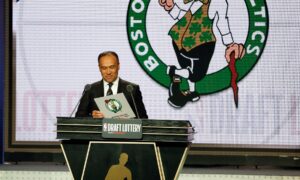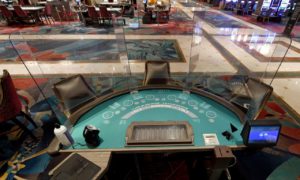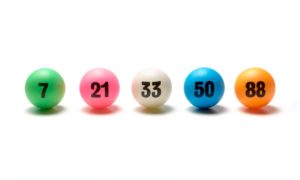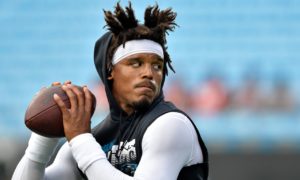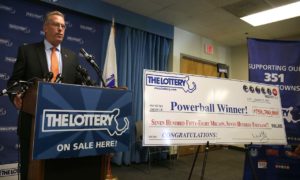Go straight to the content.
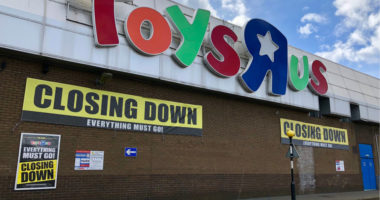
Deborah Goldberg, the Massachusetts State Treasurer and Receiver General, emphasizes the urgent need to modernize the state lottery. This modernization specifically entails the transition of the lottery to an online platform.
Goldberg expressed her concern about the Massachusetts Lottery’s future relevance during the Greater Boston Chamber of Commerce Government Affairs Forum, stating that unless it embraces online operations in the near future, it runs the risk of becoming obsolete. She emphasized this point, especially considering the growing gambling competition throughout the state.
The Lottery will soon lose relevance if it fails to adapt and go online, considering the presence of sports betting, casinos, and fantasy sports. This is a simple reality.
Massachusetts is on the brink of experiencing a significant surge in casino gambling.
In 2011, the Expanded Gaming Act was approved by state legislators, paving the way for the establishment of the Plainridge Park Casino slot parlor in Plainville. Penn National Gaming took the opportunity and opened this casino in June 2015, making it the first of its kind in the state. Nevertheless, this venture marks merely the initial phase of a much larger expansion in the industry.
The construction of two commercial casino resorts in the state was also authorized by the Expanded Gaming Act.
MGM Springfield and more
The opening of the $950 million MGM Springfield in Springfield is set to take place on August 24. This grand establishment will include a luxurious 250-room hotel and an expansive 125,000 square feet of gaming space. Within the premises, visitors will find an impressive array of amenities, such as 3,000 slot machines, 100 gaming tables, a dedicated poker room, as well as an exclusive high-limit VIP gambling area.
Moreover, the anticipated opening of the Encore Boston Harbor (previously known as Wynn Boston Harbor) in 2019 will bring a $2.4 billion investment to Everett. This grand establishment will encompass a vast gaming area of 150,000 square feet, housing over 3,200 gaming machines and 165 table games.
However, there is more to it than that.
One Native American tribe based in Massachusetts is set to open a casino, and additional tribes have also shown interest in doing so. The construction of the Mashpee Wampanoag Tribe’s $1 billion First Light Resort & Casino in Taunton is nearing completion, with plans to open this summer.
In 2016, Massachusetts passed a law to legalize daily fantasy sports. With the recent lifting of a federal ban on sports betting by the US Supreme Court in May, the state could potentially follow suit. Considering this development, Goldberg emphasizes the urgency for the Massachusetts Lottery to take action in order to remain competitive. Failure to act promptly may result in missed opportunities.
The last thing Mass wants to be is Toys R Us
Goldberg drew a comparison between the state lottery and the plight of Toys R Us, a renowned toy store chain. Much like Toys R Us, the state lottery is now grappling with the repercussions of being late to the online sales game. Following its announcement of closure on March 15, Toys R Us has initiated liquidation sales in its vast network of over 800 stores nationwide.
Goldberg is urging the Economic Development and Emerging Technologies Committee of the state to prioritize the advancement of the online lottery bill on their agenda. The deadline for this action is Friday. Previously, Committee House Chair Rep. Joseph Wagner stated that the online lottery legislation would not progress this year. Nonetheless, Goldberg warned that if it does not move forward, the state lottery could face a similar fate as Toys R Us.
Our goal is to ensure we are not tardy in adapting to the changing market. I often explain that the last thing we want is to end up like Toys R Us. It is essential for us to establish an online presence to sustain profitability, remain pertinent, and let’s not forget that our profits contribute to local aid.
The Massachusetts Lottery is operated by the State Treasurer and Receiver General’s office. Out of every dollar collected by the lottery, 72 cents is awarded as prizes to players. Additionally, 5.7 cents is distributed to approximately 7,500 lottery retailers throughout the state, and 1.9 cents is allocated for the operational expenses of running the lottery.
Massachusetts Lottery profits
In the form of local aid, the Commonwealth’s 351 cities and towns directly receive the remaining 20.4 cents, which totaled $1.039 billion in fiscal 2017. This marked the first instance where lottery profits surpassed $1 billion.
In December, Goldberg cautioned lawmakers that this could potentially be the final warning. She explicitly foretold that if no steps were taken to modernize the lottery’s offerings, the profits for Massachusetts Lottery would decline to $968 million in fiscal 2018 and further decrease to $965 million in fiscal 2019.
Goldberg pledged to persist in elucidating the present state of the Massachusetts Lottery to lawmakers, but she pointed out that they might only comprehend it once there is a noticeable decline in the distribution of funds throughout the Commonwealth.
If there’s a decrease in funds allocated to local communities, it would raise concerns among local elected officials and members of the Legislature. They would recognize the importance of these dollars for each community and take action to prevent such a situation.
Goldberg is currently seeking re-election and is running uncontested in the Democratic primary. In the upcoming November election, she will be competing against Keiko Orrall, a Republican representative from Lakeville.
Orrall has shown keen interest in enabling direct involvement of the Massachusetts Lottery in the realm of sports betting.
The photo credit is given to photocritical from Shutterstock.com.

